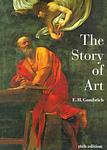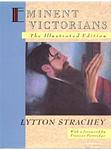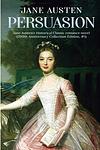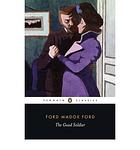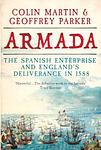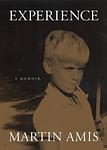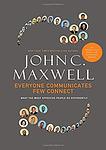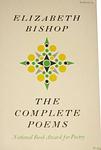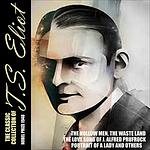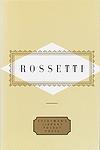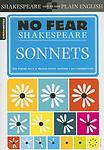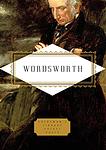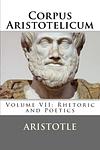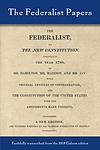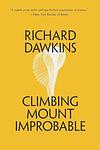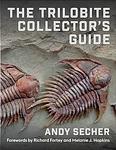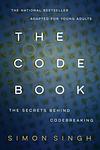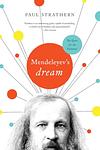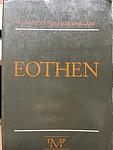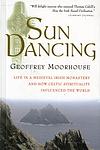The Guardian's Essential Library
This is one of the 284 lists we use to generate our main The Greatest Books list.
-
Essays On Music by Theodor Adorno
This collection is a comprehensive anthology of critical essays on the subject of music, written by one of the 20th century's most influential philosophers and social critics. The work delves into the complexities of musical composition, performance, and reception, offering a profound exploration of the social, political, and cultural dimensions of the musical experience. The author critiques the commodification of music in capitalist societies and the way this impacts artistic authenticity and the listener's experience. Through a series of essays, the author examines various genres and eras, from classical to jazz to popular music, applying a rigorous theoretical framework that draws from Marxist thought, sociology, and psychoanalysis to dissect the role of music in modern life.
-
The Painter Of Modern Life by Charles Baudelaire
"The Painter of Modern Life" is a seminal essay that explores the concept of beauty in the rapidly changing urban landscape of the 19th century. The author delves into the life and work of an artist who captures the fleeting, ephemeral experiences of modernity, arguing that the true artist must extract the eternal from the transitory. Through a series of observations and critiques, the essay celebrates the vibrancy of city life, the fashion of the day, and the character of the modern individual, while also examining the role of the artist as a detached but deeply perceptive chronicler of the contemporary world. The work is a philosophical treatise on aesthetics that has influenced both the understanding of modernism in art and the broader cultural perception of modern life.
-
Beethoven's Letters by Ludwig van Beethoven
This book offers an intimate glimpse into the personal life and inner world of one of classical music's greatest composers through a collection of his correspondence. Spanning from his early years in Bonn through his rise to fame in Vienna and until his death, the letters reveal his relationships with family, friends, and fellow artists, his struggles with hearing loss, and his insights into his creative process. They also reflect his financial worries, his search for love, and his passionate involvement with the political and cultural movements of his time. The letters are a testament to his enduring legacy and provide a deeper understanding of his music through the lens of his personal experiences and emotions.
-
Ways Of Seeing by John Berger
This book is a seminal work of art criticism that challenges traditional Western cultural aesthetics by examining the ways in which we culturally learn to view art, particularly the impact of modern mass-reproduction on our experience of seeing. The author argues that the context, or "gaze," through which we perceive art significantly affects its meaning and our appreciation of it. The book also explores the portrayal of women in art and society, the relationship between art and ownership, and the connection between historical context and visual perception. It is a provocative critique that encourages readers to reconsider the role of visual imagery in our everyday lives and the power structures inherent in the act of looking.
-
The Story of Art by E. H. Gombrich
"The Story of Art" is a comprehensive guide to the history of art, covering a vast span of time from prehistoric art to contemporary movements. The book provides insights into the cultural, historical, and social contexts that have influenced the creation of art throughout various periods. It offers detailed analysis of major works and styles, and discusses the techniques used by artists from different eras. It is not only an exploration of the evolution of art but also an attempt to understand the motivations and inspirations of the artists behind the works.
-
The Glenn Gould Reader by Glenn Gould
"The Glenn Gould Reader" is a compilation of writings by a renowned Canadian pianist, known for his unique and insightful perspectives on music and culture. This collection offers a window into the artist's mind, featuring a diverse range of essays, articles, reviews, and interviews that explore his philosophies on performance, the intricacies of musical interpretation, and the role of technology in the arts. His articulate and often provocative commentary extends beyond classical music to touch upon a variety of subjects, reflecting his broad intellectual interests and distinctive voice in the world of music and beyond.
-
Doctor Faustus by Thomas Mann
The novel is a reimagining of the Faust legend set in the context of the first half of the 20th century and the turmoil of Germany in that period. It tells the story of a composer who makes a pact with the devil, exchanging his soul for unlimited creative genius. The protagonist's life and work reflect the cultural and political journey of Germany leading up to World War II, providing a deep exploration of the individual's role in a society undergoing dramatic change. The novel is also a profound meditation on the nature of time, the art and the artist, and the destructiveness of human ambition.
-
The Classical Style by Charles Rosen
This book is an authoritative analysis of the major musical compositions and stylistic innovations during the Classical period, focusing specifically on the works of Haydn, Mozart, and Beethoven. The author, a renowned pianist and musicologist, delves into the origins and development of the classical style, examining how these composers transformed the musical landscape with their approaches to form, harmony, and aesthetic. He offers readers a deep understanding of the period's music through detailed discussions of sonata form, the use of motifs, and the balance between melody and accompaniment, providing insights that connect the technical aspects of music theory with the expressive power of the classical repertoire.
-
Memories And Commentaries by Igor Stravinsky
"Memories and Commentaries" is a reflective work that offers a window into the mind of one of the 20th century's most influential composers. Through a series of personal recollections and insights, the book delves into the author's artistic journey, his relationships with other prominent figures in the world of music and art, and his philosophical musings on the nature of creativity. The narrative weaves together anecdotes from the composer's life, discussions on his own compositions and musical techniques, as well as his opinions on the works of his contemporaries, providing readers with an intimate portrait of a man whose legacy continues to shape the landscape of classical music.
-
Lives of the Artists by Giorgio Vasari
"Lives of the Artists" is a comprehensive collection of biographies of the most significant Italian artists from the 13th to the 16th centuries. The book provides a detailed overview of the artists' lives, their works, and their contributions to the art world. It includes the biographies of renowned artists like Leonardo da Vinci, Michelangelo, and Raphael, among others. The author's personal acquaintance with some of these artists lends a unique perspective, making the book a valuable historical document.
-
Brief Lives by John Aubrey
"Brief Lives" is a collection of short biographical sketches of the author's contemporaries, written in the 17th century. The book provides an intimate and informal look at the lives of notable figures of the time, including scientists, writers, politicians, and philosophers. The author's unique style blends gossip, anecdote, and personal observations, offering a fascinating and often humorous glimpse into the personalities and private lives of his subjects.
-
The Life of Samuel Johnson by James Boswell
"The Life of Samuel Johnson" is a comprehensive biography that chronicles the life of one of the most prominent English literary figures of the 18th century. The book provides an in-depth account of Samuel Johnson's life, his literary works, and his significant contribution to English literature. It also offers a detailed portrait of his personality, his relationships, his struggles with depression and illness, and his views on a variety of subjects. The book is as much a biography of Johnson as it is a portrayal of 18th-century England.
-
Henry James by Leon Edel
This book is an in-depth biography of one of the most influential writers of the 19th century. The author meticulously details the life and work of the subject, from his early years in New York and his extensive travels in Europe, to his eventual settling in England and his career as a writer. The book delves into his relationships with family, friends, and fellow writers, as well as his own struggles with identity and sexuality. It also provides a comprehensive analysis of his novels, novellas, and short stories, highlighting his unique narrative style and his exploration of complex themes such as consciousness, morality, and social class.
-
The Life of Charlotte Brontë by Elizabeth Gaskell
This biography provides an intimate look into the life of renowned author Charlotte Brontë. It covers her early years growing up in a Yorkshire parsonage, her struggles with poverty and the tragic deaths of her siblings, her development as a writer, and her eventual success. The book also delves into Brontë's relationships, particularly her close bond with her sisters, and her unrequited love for her married professor. The narrative is both a tribute to Brontë's resilience and talent, and a poignant portrayal of the hardships faced by women in the 19th century.
-
Alan Turing by Andrew Hodges
This biography provides a comprehensive look at the life and work of a pioneering computer scientist and mathematician who played a crucial role in breaking the Enigma code during World War II. It delves into his groundbreaking contributions to the development of computer science, his tragic prosecution for homosexuality, and his enduring legacy in the field of artificial intelligence and computing. The book not only celebrates his scientific achievements but also examines the social context of his time, shedding light on the challenges he faced and the impact of his work on future generations.
-
Dr. Johnson & Mr. Savage by Richard Holmes
This book delves into the complex friendship between the 18th-century literary figure Samuel Johnson and the enigmatic poet Richard Savage. It explores the profound influence they had on each other's lives and works, set against the backdrop of London's vibrant and often sordid literary scene. The narrative weaves a tale of two men from vastly different backgrounds who form an unlikely bond, with Johnson becoming fascinated by Savage's scandalous history and the mysteries surrounding his true identity. Through their association, the book examines themes of authorship, friendship, and the struggles of the creative life, while also painting a rich picture of the society they navigated.
-
Eminent Victorians by Lytton Strachey
"Eminent Victorians" is a biographical work that profiles four influential figures from the Victorian era. The book provides an in-depth look into the lives of Cardinal Manning, Florence Nightingale, Thomas Arnold, and General Gordon, exploring their respective contributions to British society during the 19th century. Through these portraits, the book offers a critical and often satirical analysis of Victorian values, institutions, and moral attitudes, challenging the idealized narrative of the era.
-
The Quest For Corvo by A. J. A. Symons
The book is a genre-blending biography that follows the author's obsessive search to uncover the life of an enigmatic and relatively obscure writer. Through a series of interviews, letters, and pieced-together anecdotes, the biographer delves into the complex character of his subject, a man of great talent and creativity who nonetheless struggled with personal demons and societal rejection. The narrative is as much about the biographer's journey and the process of biographical discovery as it is about the eccentric and troubled life of the writer himself, presenting a unique and engaging exploration of identity, legacy, and the nature of biographical pursuit.
-
The Invisible Woman by Claire Tomalin
The book is a compelling biography that uncovers the life of a woman who played a significant yet largely unrecognized role in literary history. It delves into the hidden narrative of the mistress and muse of a celebrated 19th-century author, exploring the challenges she faced as a woman in Victorian society. Her story, which includes clandestine love affairs, heartbreak, and resilience, is pieced together from scraps of historical evidence, shedding light on her influence on the author's work and revealing the sacrifices she made. The biography is a testament to the untold stories of women who have been overshadowed by the legacies of famous men.
-
Orlando: A Biography by Virginia Woolf
The novel follows the life of a young nobleman in Elizabethan England who inexplicably transforms into a woman at the age of 30 and lives on for three centuries without aging. Throughout the centuries, the protagonist experiences various historical events, engages in relationships with both men and women, and explores the complexities of gender identity and sexuality. The book is an exploration of the fluidity of gender and time, as well as a critique of societal norms and expectations.
-
Persuasion by Jane Austen
This classic novel revolves around the life of Anne Elliot, a woman of 27 who is unmarried and living with her vain, snobbish, and foolish family who are on the brink of financial ruin. Seven years prior, she had been persuaded to reject a marriage proposal from the man she loved, a poor but ambitious naval officer named Frederick Wentworth. When he returns from the war a wealthy and successful captain, old feelings are rekindled. The story follows Anne's journey towards self-realization and second chances at love amidst the complexities of her social class.
-
Our Mutual Friend by Charles Dickens
In this classic novel, a complex web of characters is spun around a central plot involving a mysterious inheritance. The narrative explores various themes such as love, greed, social class, and human nature, set against the backdrop of Victorian London. The story unfolds through the lives of numerous characters including a dust contractor, his charming daughter, a lawyer, a teacher, and a couple of greedy, scheming relatives, all of whom are connected by the mysterious fortune left by a deceased man to his estranged son, who is presumed drowned.
-
Middlemarch by George Eliot
Set in the fictitious English town of Middlemarch during the early 19th century, the novel explores the complex web of relationships in a close-knit society. It follows the lives of several characters, primarily Dorothea Brooke, a young woman of idealistic fervor, and Tertius Lydgate, an ambitious young doctor, who both grapple with societal expectations, personal desires, and moral dilemmas. Their stories intertwine with a rich tapestry of other townsfolk, reflecting themes of love, marriage, ambition, and reform, making a profound commentary on the human condition.
-
The Great Gatsby by F. Scott Fitzgerald
Set in the summer of 1922, the novel follows the life of a young and mysterious millionaire, his extravagant lifestyle in Long Island, and his obsessive love for a beautiful former debutante. As the story unfolds, the millionaire's dark secrets and the corrupt reality of the American dream during the Jazz Age are revealed. The narrative is a critique of the hedonistic excess and moral decay of the era, ultimately leading to tragic consequences.
-
The Good Soldier by Ford Madox Ford
"The Good Soldier" is a tragic tale of two seemingly perfect couples: an American couple and an English couple, who meet at a German spa and share a nine-year friendship. However, underneath the surface, their relationships are far from ideal, filled with infidelity, lies, and deceit. The story is narrated by the American husband, who is the last to realize the intricate web of affairs and betrayals amongst the group. The novel explores themes of love, passion, and the destruction that can result from suppressed emotions and societal pressures.
-
The Scarlet Letter by Nathaniel Hawthorne
Set in 17th-century Puritan Boston, this novel tells the story of a woman who conceives a daughter through an affair and struggles to create a new life of repentance and dignity. She is forced to wear a scarlet "A" on her dress as a sign of her adultery while her lover, a revered local minister, remains unnamed and unpunished. Throughout the book, themes of sin, legalism, and guilt are explored.
-
The Portrait of a Lady by Henry James
This classic novel explores the life of a young, independent American woman who inherits a large amount of money and moves to Europe, where she falls into a manipulative and oppressive marriage. The story delves into themes of personal freedom, responsibility, and betrayal, as the protagonist navigates the complexities of high society, love, and the consequences of her choices.
-
Ulysses by James Joyce
Set in Dublin, the novel follows a day in the life of Leopold Bloom, an advertising salesman, as he navigates the city. The narrative, heavily influenced by Homer's Odyssey, explores themes of identity, heroism, and the complexities of everyday life. It is renowned for its stream-of-consciousness style and complex structure, making it a challenging but rewarding read.
-
Rabbit, Run by John Updike
The novel follows the life of a 26-year-old former high school basketball star, who is dissatisfied with his current life. He impulsively leaves his wife and son and embarks on a journey in the hopes of finding a more meaningful existence. His decisions, however, lead to a series of tragic events that impact the lives of those around him. This mid-20th-century novel explores themes of freedom, responsibility, and the tragic consequences of impulsive decisions.
-
The Custom of the Country by Edith Wharton
The book follows the ambitious and cunning Undine Spragg, a beautiful Midwestern girl who marries her way into New York high society. Undine's insatiable desire for wealth, status, and comfort leads her through a series of marriages and divorces, each time climbing higher on the social ladder. However, her ruthless pursuit of success and disregard for social norms ultimately leave her feeling empty and dissatisfied. The novel offers a critique of American society and its values during the early 20th century.
-
The Master and Margarita by Mikhail Bulgakov
This novel is a complex narrative that weaves together three distinct yet intertwined stories. The first story is set in 1930s Moscow and follows the devil and his entourage as they wreak havoc on the city's literary elite. The second story is a historical narrative about Pontius Pilate and his role in the crucifixion of Jesus Christ. The third story is a love story between the titular Master, a writer who has been driven to madness by the criticism of his work, and his devoted lover, Margarita. The novel is a satirical critique of Soviet society, particularly the literary establishment, and its treatment of artists. It also explores themes of love, sacrifice, and the nature of good and evil.
-
Madame Bovary by Gustave Flaubert
Madame Bovary is a tragic novel about a young woman, Emma Bovary, who is married to a dull, but kind-hearted doctor. Dissatisfied with her life, she embarks on a series of extramarital affairs and indulges in a luxurious lifestyle in an attempt to escape the banalities and emptiness of provincial life. Her desire for passion and excitement leads her down a path of financial ruin and despair, ultimately resulting in a tragic end.
-
Effi Briest by Theodor Fontane
This novel explores the life of a 17-year-old girl who is married off to a much older man, a high-ranking official, for the sake of social and financial stability. Despite her husband's devotion, she embarks on a passionate, but doomed affair with a charming, yet manipulative, major. The affair ends disastrously, leading to her social ostracization and eventual descent into loneliness and despair. The book serves as a critique of the rigid Prussian society of the late 19th century.
-
A Hero of Our Time by Mikhail Lermontov
"A Hero of Our Time" is a novel that follows the life of a young, charismatic, yet cynical and emotionally detached Russian officer, who serves in the Caucasus region. The story is told through a series of narratives, including the officer's own journal entries, revealing his manipulative and self-destructive tendencies. The novel explores themes of disillusionment, morality, and the nature of heroism in the 19th century Russian society.
-
In Search of Lost Time by Marcel Proust
This renowned novel is a sweeping exploration of memory, love, art, and the passage of time, told through the narrator's recollections of his childhood and experiences into adulthood in the late 19th and early 20th century aristocratic France. The narrative is notable for its lengthy and intricate involuntary memory episodes, the most famous being the "madeleine episode". It explores the themes of time, space and memory, but also raises questions about the nature of art and literature, and the complex relationships between love, sexuality, and possession.
-
Eugene Onegin by Alexander Pushkin
"Eugene Onegin" is a classic Russian novel in verse that tells the story of a sophisticated and cynical young man, Eugene Onegin, who moves from the city to the country following the death of his uncle. Throughout the novel, Onegin engages in a series of interactions with other characters, including Tatyana, a young country woman who falls in love with him. Despite her sincere love, Onegin rejects Tatyana, leading to a tragic duel with his friend Lensky. The novel is renowned for its exploration of Russian society, love, and the human experience.
-
Anna Karenina by Leo Tolstoy
Set in 19th-century Russia, this novel revolves around the life of Anna Karenina, a high-society woman who, dissatisfied with her loveless marriage, embarks on a passionate affair with a charming officer named Count Vronsky. This scandalous affair leads to her social downfall, while parallel to this, the novel also explores the rural life and struggles of Levin, a landowner who seeks the meaning of life and true happiness. The book explores themes such as love, marriage, fidelity, societal norms, and the human quest for happiness.
-
Fathers and Sons by Ivan Turgenev
This classic novel explores the generational divide and ideological clash in 19th century Russia. The story focuses on the relationship between a liberal father and his nihilistic son, who challenges the traditional values and beliefs of his elders. As they navigate their personal differences, the novel delves into broader themes of progress, love, and societal change, offering a poignant commentary on the tension between old and new ideas in a rapidly changing world.
-
Candide by Voltaire
"Candide" is a satirical novel that follows the adventures of a young man, Candide, who is living a sheltered life in an Edenic paradise and being indoctrinated with Leibnizian optimism by his mentor. When he is expelled from the paradise for kissing a baron's daughter, he embarks on a journey around the world, witnessing the horrors of war, natural disasters, and human cruelty. Throughout his journey, Candide maintains his optimistic philosophy, despite the constant hardships he faces, ultimately concluding that one must cultivate their own garden, a metaphor for taking control of one's own destiny.
-
The Mediterranean And The Mediterranean World In The Age Of Philip Ii by Fernand Braudel
This seminal work offers a comprehensive analysis of the Mediterranean region during the 16th century, focusing on the complex social, political, and economic landscapes that defined the era of Philip II of Spain. The book transcends traditional historiography by emphasizing the geographical and ecological factors that shaped human activity, from the ebb and flow of commerce and the patterns of agrarian life to the rise and fall of empires. Through a meticulous study of the Mediterranean world, the narrative weaves together the intricate tapestry of cultures, religions, and power dynamics that characterized the period, providing a vivid portrayal of the enduring influence of the environment on the course of human history.
-
Essays And Criticism by William Hazlitt
"Essays and Criticism" is a collection of insightful and eloquent essays that delve into a wide range of topics, from art and literature to philosophy and social commentary. The author, a prominent 19th-century critic and essayist, showcases his ability to blend personal reflection with critical analysis, offering readers a deep exploration of human nature, creativity, and society. His work is celebrated for its clear, vigorous prose and its influence on the essay as a literary form, as well as for its timeless observations on the human condition. Through his writings, the author invites readers to consider the complexities of life and the enduring beauty of the arts.
-
The Waning of the Middle Ages by Johan Huizinga
"The Waning of the Middle Ages" is a historical analysis of the cultural life of the late Middle Ages, particularly in France and the Low Countries, during the 14th and 15th centuries. It delves into the period's modes of thought, forms of expression, religious beliefs, and social norms. The book argues that the era was characterized by a highly stylized and overwrought civilization, marked by an excessive emphasis on chivalry and courtly love, a religious mindset dominated by the fear of death and the afterlife, and a cultural milieu that was both highly imaginative and deeply pessimistic.
-
The Face of Battle by John Keegan
"The Face of Battle" is a military history book that examines warfare from the perspective of the common soldier. It explores three significant battles in detail - the Battle of Agincourt in 1415, the Battle of Waterloo in 1815, and the Battle of the Somme in 1916. By focusing on the experiences of the individual soldiers, the book provides readers with a unique insight into the reality of war, the strategies employed, the conditions faced by soldiers, the impact of technological advancements on warfare, and the human cost of these historic battles.
-
If Not Now, When? by Primo Levi
This novel follows a band of Jewish partisans behind German lines during World War II. They are a diverse group from different countries and social backgrounds, all brought together by the common goal of sabotaging the Nazi war effort and surviving the Holocaust. The narrative explores their various experiences, the challenges they face, their acts of resistance, and their hopes for a future free from oppression. The title reflects the urgent necessity of their mission and their determination to fight back against their persecutors.
-
The Armada by Garrett Mattingly
"The Armada" is a comprehensive historical account of the attempted invasion of England by the Spanish Armada in 1588. This work meticulously chronicles the political and religious turmoil of the era, the strategic planning and execution of the naval campaign by the Spanish, and the defensive maneuvers of the English under the leadership of Queen Elizabeth I. The narrative delves into the personalities of key figures, the technological and tactical aspects of 16th-century naval warfare, and the broader European context, culminating in a detailed examination of the battles and the Armada's eventual disastrous defeat, which had lasting consequences for the balance of power in Europe.
-
English Society In The Eighteenth Century by Roy Porter
This book offers a comprehensive exploration of the social landscape of 18th-century England, delving into the diverse aspects of daily life and the remarkable transformations that characterized the era. It examines the intricate fabric of English society, from the lives of the aristocracy to the conditions of the poor, and how the age was shaped by factors such as urbanization, commercialization, and the Enlightenment. The narrative captures the contrasts and contradictions of the period, revealing how advancements in education, culture, and industry coexisted with persistent inequality and social strife, painting a vivid picture of a dynamic and evolving society.
-
Annals by Cornelius Tacitus
"Annals" is a historical work that provides a comprehensive account of the Roman Empire from the reign of Tiberius in 14 AD to the death of Nero in 68 AD. The author, a senator and historian of the Roman Empire, explores the inner workings of Roman politics, military campaigns, and social culture during this period. The book offers an in-depth look at the political machinations, power struggles, and the moral decay of the Roman elite, providing a critical perspective on the Roman emperors and their rule.
-
The Leopard by Giuseppe Tomasi di Lampedusa
"The Leopard" is a historical novel set in 19th-century Sicily, during the time of the Italian unification or Risorgimento. It centers on an aging, aristocratic protagonist who is coming to terms with the decline of his class and the rise of a new social order. The narrative weaves together personal drama with the larger political and social upheaval of the time, providing a rich, nuanced portrait of a society in transition. Despite his resistance to change, the protagonist ultimately recognizes its inevitability and the futility of his efforts to preserve the old ways.
-
Experience by Martin Amis
"Experience" is a memoir which delves into the author's life, exploring his relationships with his family, friends, and his own self. The narrative is a candid reflection on his father's influence, his friendships with other writers, his marriages, and his children. The author also discusses his experiences with fame, age, and loss, providing an intimate look into his personal and professional journey. The memoir is a blend of the author's unique humor, sharp observations, and poignant moments, offering a compelling and deeply personal narrative.
-
I Know Why the Caged Bird Sings by Maya Angelou
This memoir recounts the early years of an African-American girl's life, focusing on her experiences with racism and trauma in the South during the 1930s. Despite the hardships she faces, including sexual abuse, she learns to rise above her circumstances through strength of character and a love of literature. Her journey from victim to survivor and her transformation into a young woman who respects herself is a testament to the human capacity to overcome adversity.
-
Testament Of Youth by Vera Brittain
Testament of Youth is a poignant memoir detailing the author's experiences during World War I. The narrative follows her journey from her early life, her time as a Voluntary Aid Detachment nurse serving in London, Malta, and France, and her later years as a writer and pacifist. The author's personal loss, including the death of her fiancé and her brother, and the impact of the war on her generation, is a central theme, offering a unique female perspective on the devastating effects of war.
-
Diaries by Alan Clark
"Diaries" is a candid and often controversial collection of journal entries by a prominent British politician and historian. The book offers a unique insider's perspective on the UK's political landscape from the 1970s to the late 1990s. It is filled with the author's personal observations, experiences, and interactions with key political figures, providing readers with a rare glimpse into the inner workings of British politics. The author's sharp wit, colorful language, and unabashed honesty make this book a compelling read.
-
The Naked Civil Servant by Quentin Crisp
The book is a groundbreaking autobiography that chronicles the life of an openly gay man in the conservative British society of the early 20th century. It details the author's struggles with societal norms, his flamboyant persona, and his refusal to hide his sexuality, despite facing constant ridicule and violence. Through wit and resilience, the author becomes a celebrated eccentric and a gay icon, providing an unapologetic and humorous insight into the life of an individual determined to live authentically in the face of pervasive prejudice.
-
C by John Diamond
The book is a personal account of the author's battle with throat cancer, exploring the emotional and physical challenges faced during the diagnosis, treatment, and the psychological impacts of living with a life-threatening illness. Through candid and often witty narrative, the author delves into the complexities of the medical system, the search for alternative therapies, and the profound effects of the disease on his personal relationships and perspective on life. It is a story of resilience, the importance of support, and the quest for meaning in the face of mortality.
-
Good-Bye to All That by Robert Graves
This memoir provides a candid and unflinching look at the horrors of World War I, as experienced by a young British officer. The narrative explores the brutality and futility of war, the author's struggle with shell shock, his disillusionment with the military and British society, and his decision to leave England for a new life abroad. It also offers insights into the author's personal life, including his troubled marriage and his relationships with other prominent figures of the time.
-
If This Is a Man by Primo Levi
This book is a deeply moving and insightful memoir of a survivor of Auschwitz, a Nazi concentration camp during World War II. The author, an Italian Jew, provides a detailed account of his life in the camp, the brutal conditions, the dehumanization, and the struggle for survival. The narrative is a profound exploration of the human spirit, resilience, and the will to live, despite unimaginable horror and suffering. It also raises profound questions about humanity, morality, and the capacity for evil.
-
Long Walk To Freedom by Nelson Mandela
"Long Walk to Freedom" is a powerful autobiography that chronicles the extraordinary life of Nelson Mandela. From his humble beginnings in a rural village to becoming the first black president of South Africa, Mandela's journey is one of resilience, determination, and unwavering commitment to justice and equality. Through his personal experiences, he provides a vivid account of the struggle against apartheid, his 27 years of imprisonment, and the eventual triumph of democracy. This book serves as an inspiring testament to Mandela's unwavering spirit and his lifelong fight for freedom and human rights.
-
The Autobiography of Malcolm X by Alex Haley
This book is an autobiography narrating the life of a renowned African-American activist. It delves into his transformation from a young man involved in criminal activities to becoming one of the most influential voices in the fight against racial inequality in America. The book provides a deep insight into his philosophies, his time in prison, conversion to Islam, his role in the Nation of Islam, his pilgrimage to Mecca, and his eventual split from the Nation. It also addresses his assassination, making it a powerful account of resilience, redemption, and personal growth.
-
Complete Poems by Elizabeth Bishop
"Complete Poems" is a comprehensive collection of works by a renowned poet, showcasing her mastery of language and imagery. The book features a wide range of themes including travel, nature, loss, and human connection. The poet's keen eye for detail, unique perspectives, and her ability to infuse ordinary moments with profound insights, make this collection a compelling exploration of the human experience.
-
Troilus And Criseyde by Geoffrey Chaucer
The narrative is a medieval romance that tells the tragic tale of the young Trojan prince Troilus and his doomed love affair with the beautiful Criseyde amidst the backdrop of the Trojan War. After falling deeply in love with Criseyde, Troilus's happiness is short-lived as political circumstances force her to leave Troy and join the Greek camp. Despite her initial vow to remain faithful, Criseyde succumbs to the advances of the Greek warrior Diomedes, leaving Troilus heartbroken and disillusioned. The story explores themes of love, fate, and the capricious nature of fortune, ultimately leading to Troilus's untimely death on the battlefield, as he is unable to reconcile his loss and despair.
-
The Waste Land by T. S. Eliot
"The Waste Land" is a long poem that presents a bleak and despairing view of the world following the devastation of World War I. The poem is divided into five parts and uses a wide range of literary and cultural references, as well as multiple narrators, to depict a world in ruins. It explores themes of disillusionment, despair, and the decline of civilization, and is often considered a seminal work of modernist literature.
-
The Poems of Robert Frost by Robert Frost
This collection of poetry showcases the work of a renowned American poet, featuring his signature exploration of rural life, complex social and philosophical themes, and vividly depicted New England landscapes. The anthology includes some of his most famous poems, marked by a mastery of language, precise imagery, and a keen ear for the sound of spoken word. His poems often touch on the beauty of nature, the human condition, and the dichotomy between life and death, demonstrating his profound understanding of the human experience.
-
The Short Stories Of Thomas Hardy by Thomas Hardy
This collection showcases the short stories of a renowned 19th-century English novelist and poet, renowned for his vivid depiction of rural life and his profound understanding of human nature. The stories explore themes of love, tragedy, fate, and the struggle against social constraints, offering a profound look into the human condition. Each story is a masterful blend of rich characterization, evocative landscapes, and insightful social commentary, reflecting the author's deep connection to the landscapes and people of rural England.
-
Christina Rossetti: The Complete Poems by Christina Georgina Rossetti
This book is a comprehensive collection of poems by a renowned 19th-century poet. It includes all her known works, ranging from her youthful verses, devotional poems, and love lyrics to her later, darker musings on mortality. The collection showcases the author's mastery of rhythm and rhyme, her rich use of imagery, and her exploration of themes such as love, loss, and spirituality. It offers readers a chance to immerse themselves in the depth and beauty of her poetic world.
-
The Sonnets by William Shakespeare
"The Sonnets" is a collection of 154 poems that explore themes such as love, beauty, politics, and mortality. The sonnets are written in a specific form that the poet popularized, consisting of 14 lines with a specific rhyme scheme. The collection is divided into two sections: the first 126 sonnets are addressed to a young man, while the last 28 are addressed to a woman known as the 'dark lady'. This collection is widely considered one of the greatest achievements in English literature.
-
Collected Poems Of Edward Thomas by Edward Thomas
The book is an anthology of poetry from a notable early 20th-century poet whose work delves into themes of nature, the English countryside, and the human experience, often reflecting on the transient beauty of the world and the melancholy of war. His verse is characterized by a deep appreciation for the landscape, a sense of nostalgia, and a profound contemplation of life and death, influenced by his own experiences and the turmoil of the era in which he lived. The collection brings together a range of his poems, showcasing his talent for rich imagery, emotional depth, and a quiet, reflective tone that has cemented his place as a significant figure in English poetry.
-
The Prelude by William Wordsworth
"The Prelude" is an autobiographical, epic poem that explores the author's spiritual growth and development. The narrative takes the reader through the poet's childhood and youth, his experiences in the French Revolution, and his subsequent disillusionment. It also delves into his relationship with nature, which he sees as a powerful, spiritual force that has shaped his life and consciousness. The poem is a reflection on the poet's personal journey towards understanding his own mind and the world around him.
-
Corpus Aristotelicum by Aristotle
The "Corpus Aristotelicum" is a collection of texts by an ancient Greek philosopher, providing an extensive exploration of numerous fields of knowledge, such as metaphysics, ethics, logic, politics, biology, and poetry. These works have been instrumental in shaping Western philosophy and have had a profound influence on a wide range of subjects, including science, theology, and politics. The collection is known for its systematic and logical approach, and for its groundbreaking ideas that continue to stimulate intellectual discourse.
-
Reflections on the Revolution in France by Edmund Burke
This book is a political pamphlet written in the 18th century, where the author criticizes the French Revolution, arguing that it has gone too far in its quest for radical change. He asserts that the revolutionaries, in their rejection of tradition and their embrace of abstract notions of liberty and equality, have overlooked the complexities of real social and political life. The author advocates for gradual, prudent reform rather than sudden, violent change and emphasizes the importance of tradition and inherited institutions.
-
The Federalist Papers by Alexander Hamilton, James Madison, John Jay
"The Federalist Papers" is a collection of 85 articles and essays written to promote the ratification of the United States Constitution. These works discuss the benefits of a stronger national government, the proposed structure of the government, and the division of powers among its various branches. They also address criticisms of the Constitution and detail the failures of the Articles of Confederation. The papers remain a primary source for interpretation of the U.S. Constitution and the intentions of its framers.
-
Leviathan by Thomas Hobbes
"Leviathan" is a seminal work of political philosophy that presents an argument for a social contract and rule by an absolute sovereign. The author argues that civil peace and social unity are best achieved by the establishment of a commonwealth through social contract. He suggests that without a strong, central authority to impose law and order, society would descend into a state of nature, characterized by perpetual war and chaos. The book is divided into four parts: Of Man, Of Commonwealth, Of a Christian Commonwealth, and Of the Kingdom of Darkness.
-
Communist Manifesto by Karl Marx, Friedrich Engels
This influential political pamphlet advocates for the abolition of private property, the rights of the proletariat, and the eventual establishment of a classless society. The authors argue that all of history is a record of class struggle, culminating in the conflict between the bourgeoisie, who control the means of production, and the proletariat, who provide the labor. They predict that this struggle will result in a revolution, leading to a society where property and wealth are communally controlled.
-
Orwell And Politics by George Orwell
The book is a comprehensive anthology that brings together a selection of essays, letters, and excerpts from novels, showcasing the author's profound political thought and his unwavering concern for social justice, freedom, and the abuses of political power. It provides insight into the author's evolving political ideology, from his early days as a colonial policeman in Burma to his experiences in the Spanish Civil War, which shaped his views on totalitarianism and socialism. The collection serves as both a reflection of the tumultuous political landscape of the 20th century and a testament to the author's enduring influence as a political writer and thinker.
-
The Social Contract by Jean-Jacques Rousseau
"The Social Contract" is a philosophical work that discusses the concepts of sovereignty and the social contract. The author argues that all men are born free, but everywhere they are in chains, suggesting that society and its rules are a form of enslavement. However, he also posits that a social contract, where individuals come together to form a collective or a society, is necessary for the preservation of their freedom. This contract allows for the creation of a sovereign that is made up of the collective and expresses the general will, which is always right and tends towards the public utility.
-
Development As Freedom by Amartya Sen
The book in question is a seminal work in the field of economics and development studies, which argues that true development is best understood as the process of expanding the real freedoms that people enjoy. It challenges traditional indicators of growth, such as GDP, suggesting that they fail to capture the essence of human well-being. Instead, it posits that development should be assessed by the range of choices available to individuals, including access to education, healthcare, and the ability to participate in the economic and political life of society. The author emphasizes the interdependence of various types of freedoms, from political rights to economic opportunities, and the role they play in empowering people to live the lives they value.
-
Democracy in America by Alexis de Tocqueville
This influential book offers an in-depth analysis of the strengths and weaknesses of 19th century American democracy. The author, a French political thinker, provides a detailed examination of the democratic process and its impact on society, politics, and the economy. The work highlights the importance of civil society, local institutions, and the spirit of equality in ensuring the stability of democracy. It also delves into the dangers of majority tyranny, the potential for democratic despotism, and the critical role of religion and morality in sustaining a democratic nation.
-
E=Mc2 by David Bodanis
The book provides a layperson-friendly explanation of the world's most famous equation, delving into the history, science, and people behind its development. It explores the biographies of the scientists who contributed to our understanding of energy and mass, including the equation's originator, and the practical and philosophical implications of the equation's assertion that energy and mass are interchangeable. The narrative also discusses the equation's role in the development of atomic energy and its impact on modern physics, offering an accessible journey through the annals of scientific thought and the revolutionizing discoveries that shape our understanding of the universe.
-
Climbing Mount Improbable by Richard Dawkins
In this thought-provoking exploration of evolutionary biology, the book delves into the intricate mechanisms of natural selection that have sculpted the complex, seemingly improbable forms of life on Earth. Using the metaphor of a mountain to represent the vast landscape of evolutionary possibilities, the author guides readers through a series of biological marvels, from the sophisticated optics of the eye to the elaborate structures of spider webs, demonstrating how gradual, step-by-step changes can lead to the astonishing diversity of life. The book illuminates the power of cumulative selection to produce highly adapted organisms and dispels the notion that such complexity requires intelligent design, reinforcing the marvels of evolution as a process of climbing peaks of adaptive fitness in the vast terrain of biological possibility.
-
The Rise And Fall Of The Third Chimpanzee by Jared Diamond
"The Rise and Fall of the Third Chimpanzee" explores the fascinating similarities and differences between humans and our closest living relatives, the chimpanzees. Jared Diamond delves into the evolutionary history of Homo sapiens, examining our complex behaviors, language, art, and technology. He also addresses the darker aspects of human nature, such as violence and environmental destruction, and raises thought-provoking questions about our future as a species. Through a captivating blend of science, anthropology, and history, Diamond offers a compelling exploration of what it means to be human and the challenges we face in our quest for survival.
-
Trilobite! by Richard Fortey
The book offers an enthralling journey into the ancient world of trilobites, the early arthropods that dominated the seas long before the age of dinosaurs. Through a blend of paleontology, geology, and evolutionary biology, the text delves into the fascinating life and times of these extinct creatures, which thrived for over 300 million years. The author's passion for the subject shines through as he explores the significance of trilobites in understanding Earth's history and the development of life, all the while painting a vivid picture of the prehistoric oceans that were once teeming with these complex and varied life forms.
-
Bully For Brontosaurus by Stephen Jay Gould
In this collection of essays, the author delves into the world of natural history, paleontology, and evolutionary biology with a focus on debunking misconceptions and exploring the quirks of the natural world. Through a series of thought-provoking and often witty discussions, the book challenges the reader to reconsider their understanding of topics such as the evolution of consciousness, the debate over dinosaurs' endothermy, and the nature of scientific progress. The essays also highlight the importance of narrative in scientific discourse, illustrating how stories, such as the one about the naming of the Brontosaurus, can shape our perception of scientific truths.
-
The Man Who Loved Only Numbers by Paul Hoffman
"The Man Who Loved Only Numbers" is a captivating biography that delves into the life of a brilliant mathematician. From his early years as a child prodigy to his groundbreaking contributions in number theory, the book explores the eccentricities and obsessions that consumed his life. With a unique blend of mathematical concepts and personal anecdotes, the biography paints a vivid portrait of a man who was truly devoted to the world of numbers.
-
Contact by Carl Sagan
The book is a science fiction novel that explores the concept of human contact with extraterrestrial life. The protagonist, a scientist, deciphers a radio signal from a distant star system that contains plans for a complex machine. After building and entering the machine, she and her team are transported to a distant star system where they meet an alien species. The novel delves into philosophical discussions about religion, science, and the nature of human existence.
-
The Code Book by Simon Singh
This book is a comprehensive exploration of the history and science of cryptography, the art of secret writing. It delves into the evolution of encryption from ancient times to the modern digital era, examining how codes and ciphers have played pivotal roles in warfare, politics, and business. The narrative covers famous cryptographic milestones, including the Enigma machine of World War II and the development of public key encryption, while also addressing the challenges posed by the quest for privacy in the age of the internet. The book not only provides historical context but also introduces readers to the fundamental principles of cryptography and its significance in contemporary society.
-
Mendeleyev's Dream by Paul Strathern
This book traces the history of chemistry from the ancient philosophers' wild speculations about the composition of the universe to the creation of the periodic table by Dmitri Mendeleyev. Through a blend of storytelling and science, it explores the development of atomic theory and chemical elements, leading up to Mendeleyev's groundbreaking dream in which he envisioned the periodic table in its modern form. The narrative delves into the lives and discoveries of key figures in the field of chemistry, illustrating how their work contributed to our understanding of the elements that make up the world around us.
-
The Double Helix: A Personal Account of the Discovery of the Structure of DNA by James D. Watson
This book is a personal account of the race to discover the structure of DNA, told from the perspective of one of the co-discoverers. It provides an insider's view of scientific research, the collaboration and competition, the dedication, the doubt, the exhilaration of discovery, and the often fraught relationship between science and the rest of life. The book also explores the personalities, quirks, and conflicts of the scientists involved in the groundbreaking discovery.
-
The Road to Oxiana by Robert Byron
This travelogue chronicles a journey through Persia and Afghanistan in the 1930s, capturing the author's keen observations of the architecture, landscapes, and people he encounters. The narrative combines historical research, personal anecdotes, and vivid descriptions, providing a unique insight into these regions during this period. The author's witty and engaging style, combined with his passion for architecture, makes this book not just a travel diary but a valuable piece of cultural and historical documentation.
-
In Xanadu by William Dalrymple
"In Xanadu" is a travelogue that follows the journey of a young historian and writer as he retraces Marco Polo's route from Jerusalem to the fabled city of Xanadu in Mongolia. Along the way, the author weaves together a rich tapestry of history and adventure, engaging with diverse cultures and landscapes. His travels take him through the Middle East, South Asia, and into the heart of China, offering insights into the complex interplay between past and present, and the enduring allure of one of history's most legendary journeys. The narrative is as much a personal coming-of-age story as it is a homage to the spirit of exploration and discovery.
-
Don Quixote's Delusions by Miranda France
"Quixote's Delusions" is a travel memoir that explores the contemporary Spanish landscape through the lens of the classic novel "Don Quixote." The author embarks on a journey through Spain, retracing the steps of the novel's protagonist while examining the enduring influence of the tale on the Spanish culture and psyche. Along the way, she encounters a diverse cast of characters and experiences that reflect the quixotic blend of reality and fiction, revealing the ways in which the spirit of Don Quixote continues to resonate in modern Spain. Her reflections offer insights into the country's history, traditions, and the everyday lives of its people, all while pondering the universal themes of idealism, madness, and the pursuit of dreams.
-
Eothen by Alexander William Kinglake
"Eothen" is a vivid travelogue that chronicles the author's journey through the Middle East in the 1830s, capturing the essence of the region with a blend of personal adventure, cultural commentary, and historical insight. The narrative takes the reader on an evocative trip across countries like Turkey, Cyprus, Lebanon, Syria, Palestine, Egypt, and Jordan, offering a glimpse into the customs, landscapes, and daily life of the time. The author's keen observations and descriptive prowess bring to life the exotic locales, the encounters with diverse peoples, and the challenges of travel in an era before modern conveniences, all while reflecting the Victorian fascination with the Orient and its perceived mysteries.
-
A Time Of Gifts by Patrick Leigh Fermor
The book is a vivid memoir that chronicles the adventures of a young man as he embarks on a remarkable journey on foot across Europe in the 1930s. Starting from the Hook of Holland, he traverses through landscapes and cities, encountering a diverse tapestry of cultures, languages, and historical remnants. Along the way, he is welcomed by a variety of individuals, from aristocrats to peasants, who enrich his experience with their stories and hospitality. His travels provide not only a physical journey through the continent but also a journey through time, as he reflects on the complexities of Europe's past and the ominous shadows cast by the approaching Second World War.
-
Danube by Claudio Magris
This literary work is a rich tapestry that combines travelogue, history, and cultural analysis, following the journey of the river Danube from its sources in the heart of Europe to its delta at the Black Sea. As the narrative meanders through various countries, it delves into the complex history and diversity of the regions along the riverbanks, reflecting on the interplay of different cultures, languages, and peoples. The book is a contemplative exploration of the European spirit, examining the river as both a physical and metaphorical conduit through which ideas and influences have flowed, shaping the continent's past and present.
-
Sun Dancing by Geoffrey Moorhouse
"Sun Dancing" presents a vivid tapestry of medieval Irish monasticism, combining historical facts with imaginative storytelling. The book delves into the austere and spiritually intense lives of monks on Skellig Michael, a remote island off the Irish coast, during the early centuries of Christianity in Ireland. Through a blend of narrative and analysis, the text explores the harsh realities of monastic life, the cultural and religious contributions of these communities, and the broader context of Irish and European history during this period. The author weaves together the daily routines, spiritual practices, and legendary tales of these monks, providing a window into a world where faith and endurance converge amidst the isolation of the Atlantic Ocean.
-
Old Glory by Jonathan Raban
In this travelogue, the author embarks on an ambitious solo journey down the Mississippi River, navigating the complex currents of both the waterway and the American heartland. Steering a 16-foot aluminum motorboat, he delves into the diverse cultures, histories, and landscapes of the river, encountering a vivid cast of characters along the way. The narrative captures the essence of the United States during a particular period, exploring the intersection of the past and present, the urban and rural, and the mythic versus the everyday. Through his eyes, readers experience the mighty river's role as both a conduit for adventure and a mirror reflecting the nation's soul.
-
The Great Railway Bazaar by Paul Theroux
"The Great Railway Bazaar" is a travelogue in which the author embarks on a four-month journey by train from London through Europe, the Middle East, the Indian subcontinent, Southeast Asia, and Siberia, and then back to Europe. The book is a vivid and insightful account of the people, cultures, landscapes, and experiences encountered during the journey, painting a unique picture of the world as seen from the perspective of a train window. The author's sharp observations and engaging storytelling make this journey as much an inner exploration as a geographical one.
-
In Siberia by Colin Thubron
"In Siberia" is a travelogue that takes the reader on a profound journey through the vast and enigmatic Siberian landscape. The author traverses the region, from the Ural Mountains to the Arctic coast, exploring its desolate beauty and the resilience of its inhabitants amidst harsh climates and historical upheavals. Along the way, he encounters remnants of the Soviet era, indigenous cultures clinging to their traditions, and the poignant traces of exile and punishment that have marked the land. The narrative is a rich tapestry of history, personal encounters, and vivid descriptions that capture the soul of a place often synonymous with remoteness and exile.
-
The Prince by Niccolo Machiavelli
This classic work of political philosophy provides a pragmatic guide on political leadership and power, arguing that leaders must do whatever necessary to maintain authority and protect their states, even if it means compromising morality and ethics. The book explores various types of principalities, military affairs, the conduct of great leaders, and the virtues a prince should possess. It is known for its controversial thesis, which suggests that the ends justify the means in politics.
The Guardian, 97 Books
The Guardian asked eminent writers to choose 10 books from their respective fields to make up a capsule library of indispensable volumes. The only rules were that the books had to be in print and readily available in the UK.
From art to science via fiction and memoir, these are their selections for the Guardian's Essential Library of 100 vital books.
Art and music chosen by Susan Sontag
Biography chosen by Michael Holroyd
Fiction chosen by Julian Barnes
Fiction in translation chosen by Julian Barnes
History chosen by Simon Schama
Memoir and autobiography chosen by Linda Grant
Poetry chosen by Andrew Motion
Politics chosen by Timothy Garton Ash
Science chosen by Steve Jones
Travel chosen by Jan Morris
This list has a weight of 80%. To learn more about what this means please visit the Rankings page.
Here is a list of what is decreasing the importance of this list:
- Voters: 6-10 people voted
- Voters: are mostly from a single country/location
If you think this is incorrect please e-mail us at [email protected].




